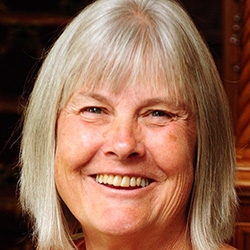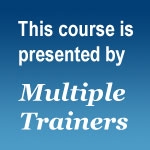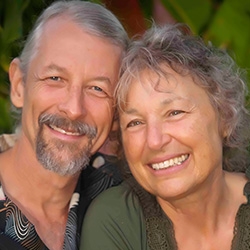

Search Results: feelings
-
Trainer Tip: Stating our observations, feelings and needs can still be heard as criticism if we don't follow it up right away with a specific, doable request. Ending your statement with a request for what you want can clarify the situation and reduce the chances that you'll be met with defensiveness. Read on for an example.
-
Trainer Tip: Violence results from thinking that others caused our pain and deserve to be punished. The cause of our feelings is related to our own needs in the moment. What happened is the stimulus. Notice this when you are tempted to blame other people for your feelings, and try to discover your unmet needs.
-
In our internal conversations, some voices dominate others, which can leave us feeling fragmented or overwhelmed. But when we dive beneath the surface and really listen to our many parts, we connect vulnerably to our full humanity.
-
Learn how your inner relationship forms the basis for Focusing and NVC.
-
Trainer Tip: Next time you prepare for a challenging conversation, solidly connect with your own feelings and needs before entering into meeting. Then attend the meeting open to creating results that work for everyone. This is likely to give increase chances that the conversation will come to a mutually satisfying conclusion.
-
It may be challenging to hear or make requests when you feel shame regarding anyone's feelings and needs. Without support, shame could be debilitating, so you may feel resistant and become defensive, hear threat, or criticize others. Instead, be with people who allow space for vulnerability. Find ways to celebrate, negotiate, be mindful, accepting, and creative.
-
Trainer tip: Read on for the three stages of emotional maturity. In the third stage, we integrate the first two stages. We come to realize that everyone is responsible for their own feelings, but we also recognize our role if we do something that stimulates pain in another person. We also start to value the needs of everyone, rather than just one party's needs over the other.
-
Trainer Tip: Notice where you're judging or blaming people for not meeting your needs. Strive instead to notice and name the related feelings and needs longing to be met. Ask a question to check with the other person about what they want and need. This can open up the conversation towards mutually beneficial solutions.
-
Here's a five-step 30 day practice to cultivate gratitude, using the practice of observations, needs, feelings, presence, vitality, awareness of contribution, sharing power and interdependence.
-
Poetic License is a fun group exercise that's sure to incite laughter in your NVC group!
-
Conflict is a normal and natural part of life. To varying degrees, it happens whenever two or more people consistently spend time together. Resolving conflict effectively and peacefully, in a way in which all parties feel respected and valued, does not feel natural for those of us who grew up with punitive, adversarial, or avoidant approaches to conflict. Eric offers some tips for approaching conflict.
-
Trainer Tip: Instead of trying for perfection, let’s try safe experimentation: Acknowledge that whenever we try a new behavior, it’s bound to take us a few times before we get it right. Read on for how we can do this. We'll use learning empathy as an example.
-
Trainer Tip: To defuse anger and create space for resolution, hear the other person’s feelings and needs. If this practice is new to you, you're like to experience fear and resistance in trying it out. However, you'll be more likely to experience a powerful shift, and build your capacity, if you try it anyways.
-
Trainer tip: Empathy, hearing feelings and needs behind someone’s words, can be incredibly healing -- and it can help us come to better understanding and resolution. Empathize with at least on person today. Read on for an example of applied empathy.
-
Rita Herzog shares how to stay true to your needs while extending empathy in family relationships.
-
Kelly Bryson shows how clear intention and awareness transform pain into growth.
-
Cunningham explains participatory/onlooker consciousness, plus feelings, needs, and NVC dialogues.
-
Join CNVC Certified Trainers, Raj Gill and Mary Mackenzie as they explore the Nonviolent Communication process of Empathy. This audio will support people with a basic understanding of Nonviolent Communication who want to deepen their ability for empathic presence.
-
Join CNVC Certified Trainers and Mediators Jori and Jim Manske in an exploration of using Nonviolent Communication in the context of Mediation and Conflict Resolution.
-
Would you like to learn how to:
- Use line and color to deeply connect with the feelings and needs that are alive for you ?
- Find a way forward that comes from your creative self ?
- Meet your creative self, even if you have never had the pleasure of meeting it before ?
Come join Olga Nguyen for Neuroart / Visual NVC– even if you have never drawn or painted before, and even if you are a professional in the midst of a creative block!

Quick Links
Subscription Preferences
Stay In Touch!
Looking for ways to keep up with NVC Academy news, get special offers, free resources, or words of inspiration? Here are five ways to stay engaged:




















